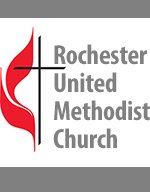Did You Know? —Feasting on the Gospels, Andy Watts
The Gospel of John speaks to the forming of a new community. “God is forming a new community rather than destroying the known one…God is revealing God’s self through Jesus the Christ…”
John 10:19-30
19 Again the Jews were divided because of these words. 20 Many of them were saying, “He has a demon and is out of his mind. Why listen to him?” 21 Others were saying, “These are not the words of one who has a demon. Can a demon open the eyes of the blind?”
22 At that time the festival of the Dedication took place in Jerusalem. It was winter, 23 and Jesus was walking in the temple, in the portico of Solomon. 24 So the Jews gathered around him and said to him, “How long will you keep us in suspense? If you are the Messiah,[a] tell us plainly.” 25 Jesus answered, “I have told you, and you do not believe. The works that I do in my Father’s name testify to me; 26 but you do not believe, because you do not belong to my sheep.
27 My sheep hear my voice. I know them, and they follow me. 28 I give them eternal life, and they will never perish. No one will snatch them out of my hand. 29 What my Father has given me is greater than all else, and no one can snatch it out of the Father’s hand.[b] 30 The Father and I are one.”
Some Thoughts on Today’s Reading—Pastor Pam
Such division is expressed in these passages in John this week. Who is this Jesus? Is he a demon or divine? Why is he here? Jesus is firm and clear about his identity as he makes the startling statement that: “The Father and I are one.” (John 10: 30)
Jesus prefaces this statement with another agrarian comparison that people of the time could understand. He is the shepherd. His sheep believe in him and know his voice. As he is questioned about who he is, Jesus says: “The works I do in my Father’s name testify to me. But you do not believe, because you do not belong to my sheep. My sheep hear my voice. I know them, and they follow me.” (John 10:25-27)
Today, most of us are not farmers. We do not work closely with sheep for our livelihood and so this comparison to sheep and shepherds becomes more challenging, especially for our churches struggling to bring the voice of the shepherd to our communities. As modern-day disciples, called to bring the words of the Good Shepherd, how do we reach a world often alienated by their understanding of what it means to follow him let alone think of themselves as sheep?
There are clues in this text from John as Jesus talks about the works he does in his father’s name. Today, Jesus empowers us to do amazing things in God’s name. Here at Rochester UMC, we clothe people and equip babies with essentials. We feed people at Sue B’s Kitchen. There are programs for seniors, our youth and passionate worship. This is deeply personal and communal living that is connective and not divisive. It is authentic and heard by many.
Through it all, the shepherd’s voice speaks to the community. We have heard him and so we follow. We follow, and the works he calls us to, and enables us to provide, are heard in community. It is one way the community of believers grows. We do these acts of discipleship in his name and in response to his voice.
Peace and Grace,
Pastor Pam
